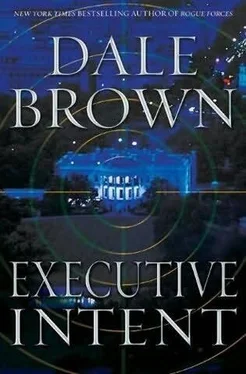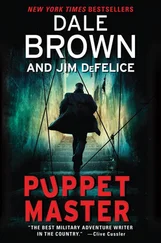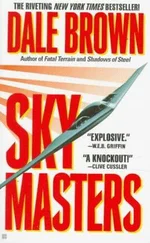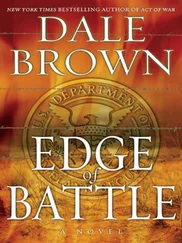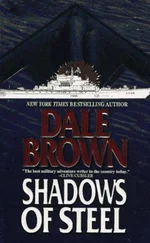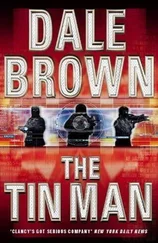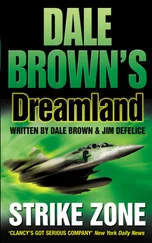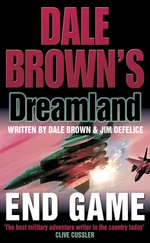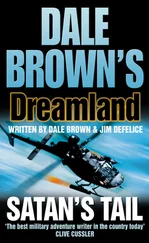“A handstand is just a scare tactic, ma’am,” Cowan explained. “It directs a jet blast down on the other guys’ plane from a few yards away. It’s surprising and maybe momentarily disruptive, but it’s not dangerous to similar-size aircraft-and the Chinese fighter is…was…much bigger than the Hornet. It’s certainly not enough to dislodge a missile from a jet-especially an armed missile.”
“So you’re saying the Chinese fighter crew deliberately fired those missiles at the carrier?”
“I don’t know, ma’am,” Cowan admitted. “But I find it hard to believe that the missiles dislodged, powered themselves up, fired off, and locked onto the Bush all by themselves.”
“Wouldn’t they need to know where the carrier was before launch?” Carlyle asked.
“Not necessarily, sir,” Cowan replied. “Some antiship cruise missiles can be self-guided by radar to attack any large target; shorter-range missiles use electro-optical sensors and datalink the images back to a controller to pinpoint a particular target. Russian-made cruise missiles can do both. Such missiles can then be fired in the general direction of their targets, or programmed to patrol an area where the targets might sail into, and then lock on and attack.”
Secretary of State Barbeau shook her hands and closed her eyes. “Hold on, everyone, hold on,” she said irritably. “We’re getting off track here. My bottom-line question: Does anybody here honestly believe the Chinese would deliberately fire a hypersonic missile at a U.S. warship in peacetime?” No one replied. “Good. I happen to agree, so we can move on from here. However it happened, I believe it was an accident. I’m going to ask the Chinese foreign minister to demand a formal inquiry and full analysis of the incident, and to have U.S. experts involved every step of the way to the maximum extent possible. China is a pretty closed society, and their government and military even more so, but I expect full cooperation. Case closed.”
Admiral Cowan’s eyes had narrowed into angry slits. “Excuse me, ma’am, but the case is not closed. What about the casualties, the damage to the carrier-”
“What about the loss of that Chinese fighter and its crew, Admiral?” Barbeau retorted. “We lost more, so they should pay? They fired the missiles, so they’re the bad guys? Excuse me, Admiral, but this ‘handstand’ maneuver sounds to me like showing off, not defending the carrier. It’s like Tom Cruise flying upside down over the MiG in Top Gun-he did it just because the MiG pilot was starting to piss him off. If we’re all agreed it was not deliberate, then the Chinese pilot flew toward our carrier just to piss us off. Is that a reason to blast him with engine exhaust and cause him to almost flip upside down and possibly dislodge those missiles?”
“Our SOP is to do everything necessary to divert a possible hostile target away with nonlethal means before resorting to lethal force-”
“Your men have their SOPs when they’re out there in harm’s way, Admiral-it’s for you and the national command authority to decide what they are and if they’re being properly performed, not me,” Barbeau said. “I know your men don’t have the luxury of sitting in a nice comfy chair and calmly debating things when they’re looking down the barrel of a gun thousands of miles from home, when the only dry landing strip and hot meal is a four-acre hunk of floating steel that might end up at the bottom of the South China Sea at any moment.
“But now we’re in my battlefield, Admiral, not yours. If we’re all agreed this was a tragic accident and not deliberate”-Barbeau paused, then pointed at each window in her videoconference monitor, querying each participant-“and we are all still agreed, are we not…?”-she waited a few breaths: still more silence-“that it was an accident, then we investigate fully to prevent such accidents from happening again; we issue the sincerest of apologies; and we move on. You start asking for reparations, or justice, or payback, and it tells me you don’t really believe it was an accident. If that’s the case, Admiral Cowan, you’d better tell me right now.”
The chief of naval operations looked as if he was going to continue the argument; then, like a balloon slowly losing air, his shoulders slumped, he folded his hands, and made an almost imperceptible shake of his head.
“Thank you, Admiral,” Barbeau said. “Now I have something to work with. One more question: Where did that Chinese fighter come from? Was it on a patrol mission, some kind of test, or is there any possibility that it could have been launched on a strike mission?”
“I can give you the answer to that, Madam Secretary,” Kai Raydon said.
“Who is this?”
“General Kai Raydon, commander of Armstrong Space Station, Air Force Space Defense Command,” Kai responded. He typed in commands on his console’s keyboard, and the image on a new videoconference monitor changed to another trio of naval vessels. “You’re looking at live pictures of the People’s Liberation Army Navy Project 190 aircraft carrier, named the Zhenyuan, accompanied by two underway replenishment vessels on either side of the carrier. We’ve been monitoring the Chinese carrier since it sailed within five hundred miles of the Bush and observed the fighter launch.”
“Who are you again, General?” Barbeau asked. “Where are you?” She turned to Secretary of Defense Turner. “Is he one of yours, Miller?”
“General Raydon commands Armstrong Space Station, the Air Force’s orbiting space reconnaissance and communications platform,” Turner replied. “Where are you exactly right now, General?”
“Two hundred and twelve miles over Argentina, sir, falling eastward at seventeen thousand six hundred miles per hour.”
“‘Falling’? You’re falling?” Barbeau exclaimed.
“Spacecraft in Earth orbit aren’t floating, Madam Secretary, and they aren’t being propelled-they are pulled to Earth by gravity like any other object,” Kai explained. “At our altitude and speed, however, we never hit the Earth as we fall because we speed past Earth as we continue to fall toward it.”
“I’m sure I don’t understand any of that, General Raydon,” Barbeau said, “so I’ll defer to your expertise. You saw the fighters launch from that carrier?”
“Armstrong is the hub of an extensive network of communications-and-surveillance satellites that cover the entire planet twenty-four/seven. If any American military unit goes into possible danger, the Air Force watches it from space. We’ve monitored the Chinese carrier almost continuously in real time since it left port.”
Barbeau nodded. “It sounds impressive,” she said. “Any unit, anytime, anywhere?”
“Yes, ma’am,” Raydon responded. “If we don’t have a satellite constellation ready to observe, we can set one up PDQ. If a satellite breaks, we can fix it. We can tie into a network of satellites and unmanned surveillance aircraft that fills in a pretty complete picture of every carrier battle group, surface-action group, and Marine Expeditionary Force deployed around the world, plus major exercises and other deployments. And if something needs blowing up, we’re developing the capability of blowing it up from here faster than you can imagine.”
“Naval support is a top priority for the Air Force these days, isn’t it?” Barbeau remarked with a slight smile. She knew that the increased emphasis on naval operations, especially carriers and multipurpose submarines, was a sore point with many services, especially the Air Force, whose budget was the hardest hit.
“Yes, ma’am, it is,” Raydon said. “They badly need the help, after all, and we’re happy to assist.”
“Go on without the editorial comments, General,” Turner said.
Читать дальше
